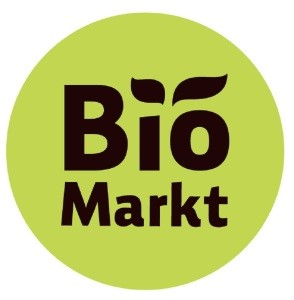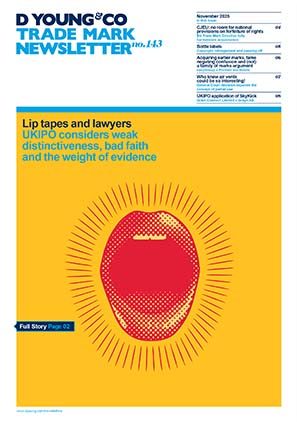Sustainable EU green trade marks on the rise
According to the European Intellectual Property Office’s “Green EU trade marks report” and its 2023 update, the proportion of green EU trade marks (EUTMs) continues to rise. This is due to the result of the growing importance of sustainability for European business and/or its products or services.
Over 14% of all applications in 2022 were for goods or services aimed at environmental protection and sustainable development. This represents an increase of over 1% from the previous year.
This increase in interest in green branding and claims corresponds with the EU’s increased efforts in the area. Tackling the issue of greenwashing and untrue or non-transparent sustainability statements and labels is high on the EU’s list of priorities as part of its European Green Deal.
The EUIPO green EUTM report
The study shows that the number of green EUTMs has increased considerably in recent years, with an average annual growth of 10% between 1996 and 2022, with EU-based firms accounting for more than 60% of all green trade marks.
2021 marked a milestone with the most ever (21,281) green EUTM applications. Although 2022 saw a slight decline in EUTM filings, the share of green trade marks continued to rise. Until 2014, EU firms registered more green EUTMs as a share of total filings compared with non-EU firms; however, since then, non-EU applicants have shown higher ratios of green EUTMs, reaching more than 14% green EUTM filings in the last three years.
Looking at the origin of the applications, China tops the ranks with 3,720 green EUTMs in 2022, almost half of the filings of green EUTMs from non-EU firms and 40% of all EUTM filings from non-EU countries. Germany leads among EU member states with 3,297 (27.5 % from EU firms and 22.5 % of all EUTM filings from EU member states), followed by Italy, France and Spain.
In terms of sectors, 25% of all green terms are classified in the energy conservation category, 18% belong to energy production, 15% to transportation, and 14% to pollution control.
Pitfalls for trade mark registrations
A trade mark must be capable of distinguishing the goods or services of one company from the goods or services of other companies. It is important to remember that green trade marks can be refused registration (Art. 7 EUTMR) or subsequently revoked (Art. 58, 59 EUTMR) if they are:
- descriptive (such as commonly used words like “eco”, “green” and “bio”) or
- indistinct (such as using green imagery).
For example, the General Court of the EU (decision T-253/22, 01 February 2023) recently refused to register the sign “Sustainability through Quality” as a trade mark since consumers would not perceive it as an indicator of commercial origin, but a promotional phrase.
Likewise the application for registration of the figurative shown below was denied (T-641/21, 13 July 2022) since it lacks the necessary distinctive character as a consequence of its descriptive indication to a “sales outlet”. The graphic was deemed insufficient to turn the attention of the relevant public away from the descriptive message and give the sign a distinctive character.

Further, a trade mark that is misleading, deceptive or made in bad faith could be denied registration or even revoked later if it misleads the public, for example, regarding environmental friendliness. Though it is a potential ground for refusal, it is rarely invoked in practice for green trade mark applications.
Green claims and greenwashing
This is different, however, when it comes to using green brands and claims in advertising.
In accordance with the EU’s mission to combat greenwashing, where products or processes are made to appear more environmentally friendly than they truly are, the EU Commission introduced the proposal for a Green Claims Directive in March 2023. The Green Claims Directive includes the prohibition of environmental advertising claims (green claims) and labels that may mislead or deceive EU consumers by establishing several minimum criteria for transparency and credibility. Further, companies will have to obtain approval of their green marketing claims from an independent verifier before they can be used in advertising. The Green Claims Directive also provides for a comprehensive range of deterrent sanctions and penalties in order to sanction violations. The proposal is still subject to negotiations and it is not yet clear when they will be finally adopted.
That proposal supports the recently adopted Directive to empower consumers for environmental change through better protection against unfair practices and better information, which entered into force on 26 March 2024, and has to be applied by the EU member states by 27 September 2026. This directive aims to better protect consumers from misleading advertising with regard to misleading, unclear, or poorly-substantiated environmental claims (greenwashing). It contains a non-exhaustive list of banned commercial practices regarding the use of generic environmental claims, which include any message or representation, including labels, brand names, company names or product names.
The Impact Assessment Report accompanying the Green Claims Directive highlights that 53% of examined green claims in the EU give vague, misleading or unfounded information and 40% have no supporting evidence.
Outlook
Environmental policy and a sustainable image are becoming increasingly important for companies and trade mark owners, materially influencing a company’s branding and advertising strategy.
Already, under current law, particular care must be taken when drafting specifications of goods and services for a trade mark application to ensure that they are not misleading or deceptive to the public. Further, applicants need to consider the distinctive and descriptiveness thresholds.
In terms of use, consideration should be given to the context of a mark’s use and the ability to substantiate a green claim, with the upcoming laws, companies could even be penalised if they are not able to do so.
However, it should not be forgotten that trade mark law can be useful in protecting against greenwashing and to convey trusted messages with regard to their business and/or characteristics of their goods/services to their customers.
Case details at a glance
Jurisdiction: European Union
Decision level: General Court
Parties: Groschopp AG Drives & More v EUIPO
Citation: T-253/2201
Date: 01 February 2023
Decision: dycip.com/t-253-2201
Jurisdiction: European Union
Decision level: General Court
Parties: dennree GmbH v EUIPO
Citation: T‑641/21
Date: 13 July 2022
Decision: dycip.com/t-641-21
Useful links
- EUIPO report “Green EU trade marks - 2023 update”: dycip.com/green-eu-trademarks-2023-euipo
- European Commission “The European Green Deal: Striving to be the first climate-neutral continent”: dycip.com/european-green-deal
- European Commission “Proposal for a Directive on Green Claims”, 22 March 2023: dycip.com/directive-green-claims-proposal

